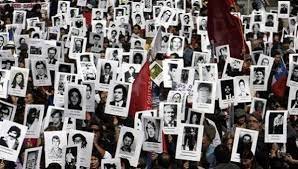Published Writing
(Selected)
-

Critical Archives
Co-written with Dr. Karin Wulf. We have been surprised to find that too often the urgent work of considering archival and library materials remains likewise siloed. While some do, too often archivists and librarians on the one side and scholars on the other are not engaging one another’s work or are even aware that each has long been engaging with important issues in critical archive studies. We should more regularly join the scholarship from each of these perspectives and collaborate across professional and disciplinary positions.
-

I am a survivor: Childhood Sexual Abuses Collections & the Archives
“I am a survivor of childhood sexual abuse,” are words that lend themselves to whispers in the night, a disclosure between friends over a glass of wine. But these are not words that are meant to be spoken by a professional woman working in academia, for they break a social contract - the life of the mind - and raise the specter of the body, its misuses and betrayals.
-

Treading the ground of contested memory: archivists and the human rights movement in Chile
This article proposes a new definition of social justice that is based in liberation theology. It questions the relationship between archival practice and social justice and asks how (and whether) social justice can (or should be) a transformative force in the archival profession. These theoretical questions are examined through a case study of human rights archives. The author travelled to Chile in December 2011 to interview archivists and human rights activists and visit human rights archives, museums, and memorials.
-

Collaboration: A Margaret Bingham Stillwell Imprint
We collaborate precisely to better understand and then to confront the exclusions and archival silences that Stillwell and other founding librarians permitted. Those silences and exclusions are a key part of what shaped our institutions and the research they supported, and now must inform our work to address them– together.
-

John Hay Library Collection Policy
Seven areas of thematic emphasis will be used as strategic foci for collecting. These strategic collecting directions also inform each other. This purposeful interconnectedness creates a holistic basis for research, education, and public engagement that encourages the kind of expansive and imaginative inquiry for which Brown University is renowned. They also create a richer and more cohesive intellectual context for a remarkable set of existing collections, allow for strategic and sustainable collecting, and create a path for reparative and community-based collecting.
-

#MeToo: A Glimpse into the Digital Vault
The Schlesinger Library has committed to documenting the #MeToo movement and its impact.
-

Embracing the Globe: Establishing a U.S. Chapter of Archivists without Borders
Social justice is a rallying point for many in the archives community. Earlier this year, a group of archivists met to discuss the necessity for and logistics of starting a chapter of Archivists without Borders in the United States (AwB-US). This collaborative team recognized the importance of joining international efforts already underway to preserve records related to human rights and underrepresented populations, as well as endangered archives.
-

Encounters in Chile A Perspective on the International Archives Community
I was in Chile on December 10, 2006 when Augusto Pinochet, military dictator from 1973 to 1990, died.